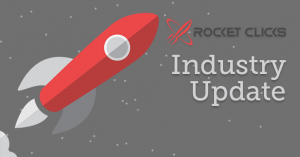At Rocket Clicks we conduct an interview series that features a Q & A with entrepreneurs, innovators, thinkers and leaders (I.e. really smart people). For this interview, we interviewed Brian Teasley, a musician, rock club promoter, and social media extraordinaire.
Teasley has been a member of the punk rock music scene since the early 1990s, and has been a member of numerous bands, most notably Man or Astro-man. He was also a head writer for Chunklet Magazine, and currently owns and promotes The BottleTree Cafe music venue in Birmingham, Alabama. He struck the social media iron while MySpace was hot, and has become a pioneer of show and club promotion through social networking.
Q : So when and why did you begin to use social media as a marketing tool?
Brian Teasley : Well you know, Man or Astroman, my first band ( I’ll give you a little background) started in the early 90s. We were from a small town in Alabama, and say a town like Nashville IS about four hours away. We would literally drive the four hours two weeks before the show to Nashville to put up our own flyers because we didn’t expect any club to do anything for us.
That concept to kids today just seems insane. That anybody would actually go to those lengths today. And you know, I guess not as much with Friendster, but with (the big three) Friendster, MySpace and Facebook, it just really started hitting me, especially when those things were at their peek: That wow you can do exactly what we did (driving to a town like Nashville weeks before the show) with about a day-and-a-half’s work by clicking a button. And really, in a lot of ways, I despise technology and the Internet (chuckle), but at the same time it’s pretty amazing that you can sort of do that thing.
Now the great equalization is that everybody can do it, and that’s what happened to MySpace in a lot of ways. People got spammed to death. You know it’s just the ability that you have to promote, and especially promote in a sense of last-minute. Like doing a lot of publicity two days before a show or two days before an event is pretty amazing.
Q : Initially when you started using things like MySpace and Friendster, did you have success with that initially, or was it a refined process you had to go through?
Brian Teasley: You know, actually, it took a way to kinda figure out the best way to use it. But I mean I was obsessed with it, sadly. I will readily admit this, but I was sadly obsessed with it. Not like checking my own stuff, but I was probably spending six to seven hours daily manually adding friends to our MySpace thing.
I forget what Bottletree had, but we eventually got one of those stupid programs that would search out and just add people, which I know those are real heinous and awful, but I would say I think we eventually peaked out at 60,000 to 70,000 friends. Slightly less than half of those I added by clicking on every person, more than clicking on every person because some people didn’t accept our request. I probably sent out myself by my own fingers, 200,000 friend requests.
So I really got obsessed with it for a while, but when you’re in a small business, the punk-rock thing about it is that it’s free. It’s not throwing money at something; it’s not some big ad campaign; it’s not some big radio thing; it’s not sending mail to somebody. People choose if they want to see it or not. Now I know if you told anybody, “Hey Facebook is punk rock,” kids would think you’re an idiot because it’s not cool to say, but in a lot of ways the usability of it is.
Q : Do you think the do-it-yourself nature of it is what appealed to you to use it, and do you think it had an effect on other people using it as well?
Brian Teasley : I definitely think that there was a heyday, and I really feel this way. I’m not trying to take the credit for anything I’ve ever done; I know I don’t deserve it. But there was a time where there wasn’t a lot of rock clubs on MySpace, especially that had a large presence and had their calendar listed. In fact, I’d go to other clubs our size in New York or Chicago and those places didn’t have a MySpace page.
It was like a golden age for us with MySpace, where it just felt like we had walked into this thing that was really helping out our club, and (at the time) not a lot of other people were doing it. But of course everything just kind of cascades into a ball of overspammed shit that just gets thrown at everybody. And that’s what MySpace became, and people went to Facebook, which is now starting to get that way a little bit too. I’m sure everything will kind of reinvent itself.
But I’ll tell you what it’s also done (I’m getting off the subject here), but it’s also made me really lazy. The idea of going and driving around in my car for three hours and taping up posters just seems like such a laborious task now, as opposed to writing three stupid sentences about a band and sending it out to 10,000 people in seconds. Though I still have to tape up posters occasionally (luckily we have some interns i.e free slave labor, from the local colleges that help us do it)—It’s made me really lazy, so for that, thanks a lot Facebook!
Q : In terms of reaching the people whom you want to get the information to, what about communicating with the bands that would potentially play there? Has it been a useful tool fort that type of communication too?
Brian Teasley: You know what it’s done, not really in a national level—but what it does really make a difference in is the expediency. This is somewhat unfortunate, and I can’t find many honest people that will disagree with me: That they’ll send you their link and you can check out the band within 15 seconds, and you’ll look and see: Are they wearing tie dye shirts? Are they wearing metal clothes? Are they wearing cowboy hats? Real basic stuff, I’m talking on a real kind of postman, cultural level here and how silly it is!
…So, you size up people really fast, and hear 30 seconds of their songs and you say, “Yeah these guys might not work, or these guys might work.” And that’s pretty amazing how quickly you can get connected with a band like that; however, I also think in some cases it doesn’t let you really give a band a chance, you know? Not the same way you would, for example, if you had a CD sent to you in the background while you’re making lunch.
Q : So do you think social media has made it easier for people to get out to shows?
Brian Teasley : Absolutely, it’s made it easier in that it can connect people. If I was just flyering or at a party telling kids about something, or whatever, it’s very difficult to get out to all those weird nooks and crannies in the suburbs where those kids are.
But all those kids, for the most part have computers, so a lot of those logistical geographic boundaries are broken down because people will just log on to a social networking site or see something on Twitter, and in that sense—it’s definitely connected a lot of people that would never be connected otherwise.
If we were talking about slating someone to come to a show (say they RSVP’d to the event on Facebook)—we always put it that there’s probably only about a 20% chance they’ll actually come. That’s what we’ve seen to be about accurate. But, with that said, if you go to a party or are hanging out with somebody and you grab their hand and say, “Dude, you have got to come see this f*!&ing band!”—There’s a much higher chance that that person is going to come because you’ve made this personal vouching of someone to come see a show. That person’s probably got a 75% chance of coming out, so you’ll never be able to replace that. There’s also a factor of how creative you are, what videos you link; I mean there is a strategy to all that as well, but you’ll never replace a human connection as much as we probably all want to (jokingly).
Q : So how would you say, since you first started getting involved in social media and using it for bands, for promoting, and for magazine writing—how would you say the strategy you use for promoting these things has changed over time?
Brian Teasley : Obviously, there’s the huge thing of MySpace completely falling apart and moving on to Facebook and figuring out the limitations. Facebook has been more policed and guarded; it’s what’s keeping it together. MySpace is falling apart because it was like the patients running the asylum kind of thing: There was just no boundaries to it, and you know Twitter has been its own thing too.
I think somebody that really figures out how to ease all that into one loaded chamber that sends out to a million places is going to be where it’s at. Because when Facebook was first starting, we would post something on MySpace and have to go post it on Facebook, post it on Twitter, and then send out a separate email…I mean that seems like a lot of work so I’m just getting lazier and lazier. At some point, I’m going to be a 600 pound Jabba the Hutt slug with this giant swirling straw just leaned over into this big vat of swirling green oatmeal sh!t slurping, and I’ll hit one key every other day on a keypad. I think that’s where it’s going (jokes).
Q : Do you have any particular examples of successful social media or general PR strategies that have paid off or been super successful?
Brian Teasley : Yeah, I think first and foremost you have to have people send something to you. Whatever it is, or however you do it. You collect people to send stuff to, and you collect people that make sense to send to you. If you manually added or using some stupid bot, you’re having friends re-post your stuff, or asking people to connect with you—you have to have a network of people to send stuff to.
Secondly, you have to have some sense of quality; there has to be some sense of humor; there has to be some sense of what you put out having some sort of weight to it some sort of significance, and timing. You start realizing you get way less impressions when you send stuff out on certain days, or send stuff out on certain times of the week.
Frequency is the thing I really struggle with and wake up every day with social network usage of what we do, and wonder every single day “Did we send too much out about this? Are we over-promoting something?” We live in a world that is kind of this over-lit, over-illuminated, overly promoted kind of world, and you can turn people off with that. It can be a fine line for sure.
Q : As a bonus question, we always want to know who you think we should interview next?
Brian Teasley : Interview Patton Oswalt. He’s got a strong grip on technology and the range you can get with social media for self-promotion and publicity.





















